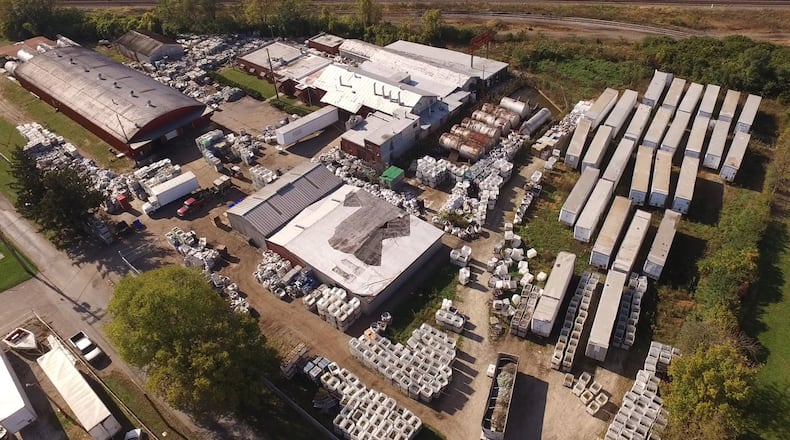Good Deeds, LLC, which owns the property, could not be reached for comment Monday. The Ohio EPA is considering legal options to force Good Deeds to pay clean up costs and penalties. "The current owner has neither the financial nor operational capacity to remove the material," the Ohio EPA said.
Good Deeds purchased the property in June for about $395,000 from Quality Farms, which had accepted the beverages for recycling. Quality Farms bought the 4.5 acre property from American Lubricants Co. in 2013.
Related: Open dump near Dayton school attracts pests carrying West Nile virus
The drinks, which were expired, mislabeled or produced incorrectly, were supposed to be recycled. Instead, the property has become an open dump site with mosquitoes and drainage into the local storm sewers — all about 300 feet from Kiser Elementary School in Old North Dayton. The mosquitoes have tested positive for West Nile virus. Ohio EPA said the site attracted rats as well.
Rumpke will be hired to tackle the problem in two stages, beginning with material left outside, before the drinks freeze and burst from the cans and bottles. Rumpke estimates it will cost $432,815 to remove the material left outside as well as stored inside trailers and warehouses. The contract begins Dec. 19 and work is supposed to be done by March 31.
Rumpke will transport the packaged material to its sanitary landfills and truck liquid material — approximately 39,000 gallons — in tankers to a landfill in Columbus. The drinks are currently stored in five warehouses, 24 trailers, liquid tanks and in an outside yard area.
Rumpke said in its proposal to the state that it would explore options to recycle some material, such as plastic, glass and aluminum containers.
Fabricator Service Company Inc., a metal processing company, is located directly next door to Good Deeds Recycling.
Owner Sam Frisby said over the summer the smell of stale beer and wine wafted from the site when the wind was blowing.
“It’s noticeable – it’s not intolerable – but it’s definitely there,” he said.
Frisby said he was concerned to learn about mosquitoes breeding on the site, especially considering how close the property is to Kiser school.
Frisby said he was close to buying the property with another partner before it was purchased by Good Deeds Recycling. They decided not to pull the trigger on the deal because the owners failed to get rid of the many beverage products that were piled up, he said.
“It is a great business idea and there’s obviously a big demand for it because of all the inventory that’s over there,” he said of the recycling plan. “Obviously something went terribly wrong in the execution of it.”


